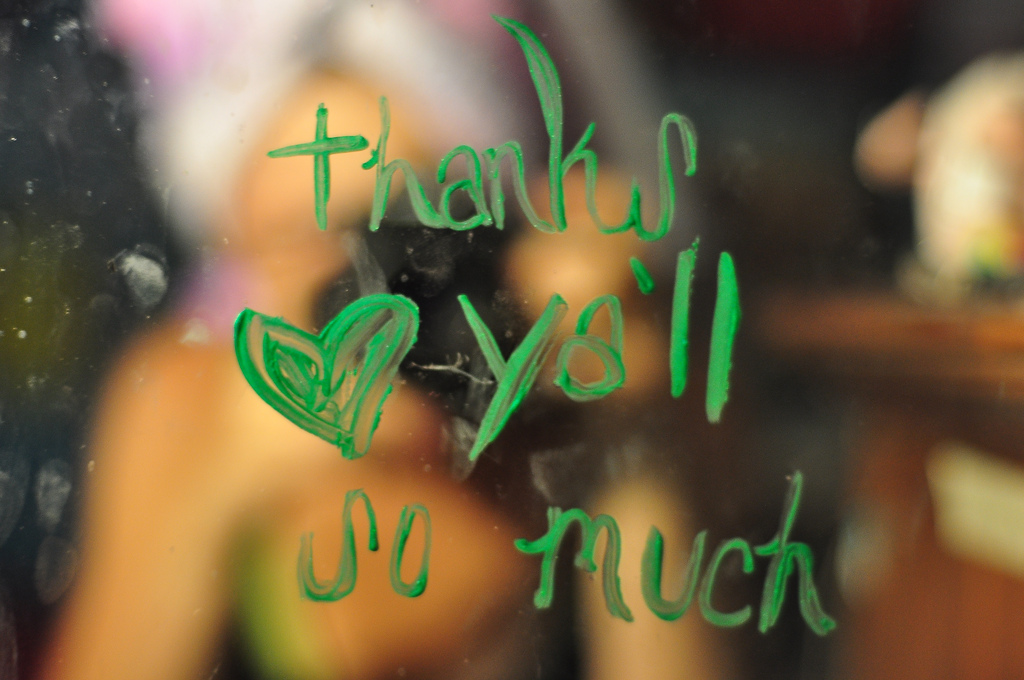The Academy Awards are on in the background as I’m writing this. Hoots and I are movie people and when we have the opportunity to watch the Oscars, we do. I have a terrible track record of picking winners, but that doesn’t stop me from trying. What I enjoy most about the Oscars are the “Thank Yous.” From Cuba Gooding, Jr.’s crazy, joyful thank you to those who are dumbfounded with surprise to the overly prepared with the list of people to thank in their pocket: saying “Thank You” and recognizing people who helped you along the way is as much a part of the evening as a gold statue.
Tonight I was struck by Natalie Portman’s eloquent, first-and-last-name thank you to everyone from top-shelf producers to camera people. Don’t know much about Ms. Portman, but I sure appreciated the personal and specific way she said “thank you.”
How do you say “thank you?”
Most ministries and nonprofits thank donors when they give gifts (don’t get me started on churches, we’ll save that rant for another time).
Probably your “thank you” (or acknowledgment) is in the form of the gift receipt. You probably have a nifty form that includes an opportunity for a next gift. All are best practices…but here are three keys to a great thank you that are often overlooked:
1. Say “thank you” with specifics. Vague or general is not the way to go. If I gave to provide meals, say so. If I gave to build a building, say it. Don’t send general “thank yous.” And get the donor’s name right. A “Dear Friend” thank you or with an incorrect name kills a heartfelt thank you.
2. Say “thank you” quickly. We’re always amazed at the long gaps between gifts and “thank yous.” Donors don’t care that you’re overwhelmed. If you don’t say “thank you” promptly, you’ve told me that you’re inefficient or overwhelmed with gifts. Neither of those are situations that encourage a donor to give again.
3. Say “thank you” for what the donor did, not for what your organization did. It’s easy to slip into an organizational mindset when thanking the donor. “Thank you for helping us meet our goal,” is about you the organization, not about the donor. You may be delighted to have met your budget, but most donors are giving because they want to change the world or solve a problem beyond your budget deficit.
What do you think? Have you seen any great (or terrible) “thank yous” that you can share? How does a timely, personal, specific “thank you” make you feel? Or on the other side, how do you react to bad “thank yous?” I’d love to hear what you think.
Oh, and I appreciate you stopping by.

Steve Thomas
Partner, Oneicity
(photo credit: Www.CourtneyCarmody.com)

